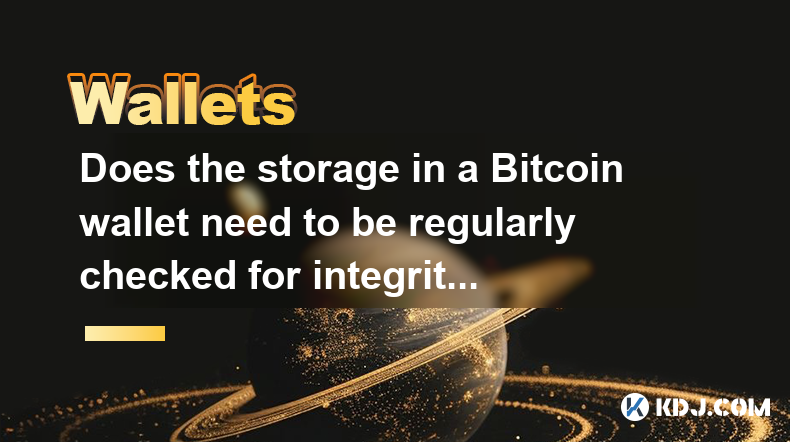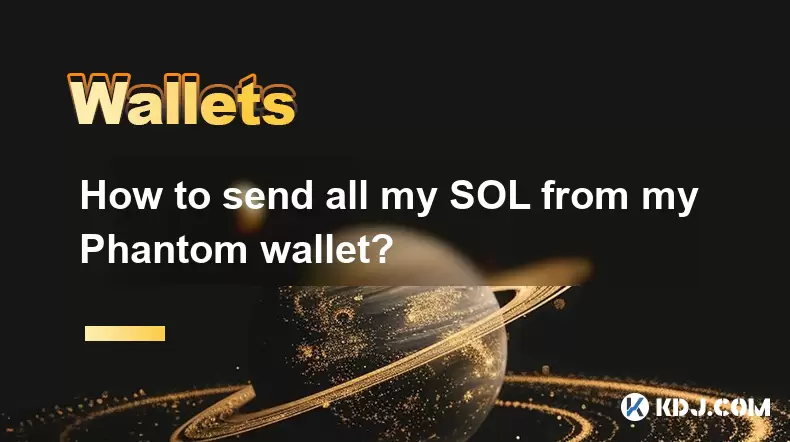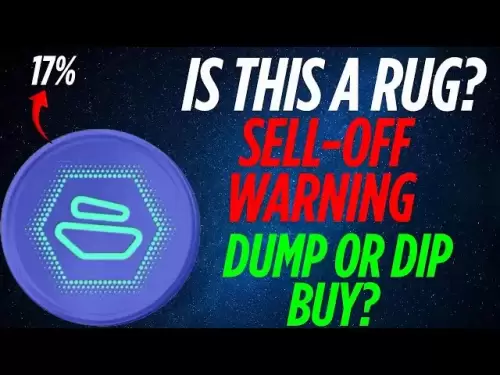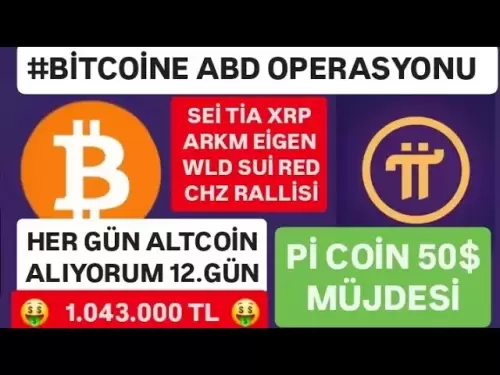-
 Bitcoin
Bitcoin $108,252.0744
-0.81% -
 Ethereum
Ethereum $2,543.5110
-1.02% -
 Tether USDt
Tether USDt $1.0001
-0.01% -
 XRP
XRP $2.2754
0.24% -
 BNB
BNB $660.7907
-0.28% -
 Solana
Solana $148.7728
-1.97% -
 USDC
USDC $0.9999
-0.01% -
 TRON
TRON $0.2867
-0.18% -
 Dogecoin
Dogecoin $0.1677
-2.32% -
 Cardano
Cardano $0.5787
-1.06% -
 Hyperliquid
Hyperliquid $38.6604
-2.60% -
 Sui
Sui $2.8580
-1.65% -
 Bitcoin Cash
Bitcoin Cash $495.9536
0.51% -
 Chainlink
Chainlink $13.4038
-0.54% -
 UNUS SED LEO
UNUS SED LEO $9.0528
0.29% -
 Stellar
Stellar $0.2485
-0.28% -
 Avalanche
Avalanche $17.9880
-1.68% -
 Shiba Inu
Shiba Inu $0.0...01162
-1.41% -
 Toncoin
Toncoin $2.7369
-3.16% -
 Hedera
Hedera $0.1581
-0.69% -
 Litecoin
Litecoin $86.1451
-1.49% -
 Monero
Monero $317.1287
-0.79% -
 Polkadot
Polkadot $3.3657
-0.78% -
 Dai
Dai $1.0001
0.02% -
 Ethena USDe
Ethena USDe $1.0000
0.00% -
 Bitget Token
Bitget Token $4.3034
-3.45% -
 Uniswap
Uniswap $7.3847
-0.25% -
 Aave
Aave $282.9351
-0.88% -
 Pepe
Pepe $0.0...09887
-1.14% -
 Pi
Pi $0.4577
-1.56%
Does the storage in a Bitcoin wallet need to be regularly checked for integrity?
Bitcoin wallet integrity checks vary by type; hardware wallets rely on firmware updates, software wallets need checksum verification and OS security, while paper wallets require physical inspection and key verification.
Mar 24, 2025 at 12:21 am

Does the storage in a Bitcoin wallet need to be regularly checked for integrity?
The question of regular integrity checks for Bitcoin wallet storage is multifaceted, depending heavily on the type of wallet used. Hardware wallets, generally considered the most secure, have built-in mechanisms to ensure data integrity. Software wallets, on the other hand, rely more on the user's diligence and the security of the operating system. Paper wallets, while offering offline security, require careful handling and verification to ensure the private keys haven't been compromised.
Let's delve into the specifics of each wallet type:
Hardware Wallets:
These wallets, like Ledger or Trezor, store your private keys on a secure physical device. They often employ secure elements and robust firmware to protect against tampering. While they don't require regular manual integrity checks in the same way software wallets do, it's prudent to regularly check for firmware updates provided by the manufacturer. These updates often include security patches and performance improvements. Checking the device's physical condition for any signs of damage is also advisable.
Software Wallets:
Software wallets, including desktop and mobile applications, are more susceptible to vulnerabilities. Regular integrity checks are crucial here. This involves verifying the software's origin and ensuring it hasn't been tampered with by malware. Check the checksum or signature of the downloaded software against the official developer's website. Also, regularly updating the wallet software is vital to benefit from security patches and bug fixes. Maintaining a clean and secure operating system is equally important.
Paper Wallets:
Paper wallets store your private keys offline, printed on paper. The biggest risk here is physical damage or loss. Regularly check the physical condition of the paper wallet for tears, water damage, or fading ink. If you suspect any compromise, create a new paper wallet and transfer your funds. Regularly verifying the accuracy of the printed private keys against a backup copy is also recommended. This should be done with extreme caution to avoid errors that could lead to loss of funds.
Cloud-Based Wallets:
These wallets, while convenient, introduce significant security risks. You are entrusting your private keys to a third-party service provider. While they may employ security measures, the risk of a breach remains. Regular integrity checks in this context focus on monitoring the service provider's security announcements and reputation. Look for evidence of robust security practices and a history of protecting user data. Consider diversifying your storage across multiple wallets to mitigate risk.
Understanding Private Key Integrity:
The core of Bitcoin security rests on the integrity of your private keys. Compromised private keys mean loss of funds. Regular checks, while not directly checking the keys themselves in all wallet types, focus on the environment surrounding the keys. This involves ensuring the software, hardware, and physical environment are secure and free from malware or damage.
Specific Integrity Check Methods:
- Hardware Wallet Firmware Updates: Regularly check for and install firmware updates provided by the manufacturer.
- Software Wallet Checksums: Verify the checksum of your downloaded wallet software against the official website.
- Physical Inspection: For paper wallets, visually inspect for damage. For hardware wallets, check for physical signs of tampering.
- Operating System Security: Ensure your operating system is up-to-date and protected by antivirus software.
- Backup Verification: Regularly compare your backups against your primary wallet information.
Common Questions:
Q: Can I use a checksum to verify the integrity of my hardware wallet?
A: No, checksums are typically associated with software downloads. Hardware wallets rely on secure elements and physical security for integrity. Firmware updates are the primary way to maintain their security.
Q: How often should I perform these integrity checks?
A: The frequency depends on the wallet type and your risk tolerance. For software wallets, weekly checks might be prudent. For hardware wallets, monthly checks for firmware updates are sufficient. Paper wallets should be inspected whenever they are handled.
Q: What should I do if I detect a security issue?
A: Immediately move your funds to a new, secure wallet. If you suspect a compromise in your software or hardware wallet, contact the manufacturer or developer for support. For paper wallets, generate a new wallet and carefully transfer your funds.
Q: Are there any tools to automatically check wallet integrity?
A: There aren't universally applicable tools for automated integrity checks across all wallet types. The methods described above rely on manual verification and reliance on official updates and security protocols from the wallet provider.
Q: Is it possible to recover a compromised private key?
A: No, compromised private keys are irretrievable. The focus should be on preventing compromise rather than recovering lost keys. Strong security practices and backups are crucial.
Disclaimer:info@kdj.com
The information provided is not trading advice. kdj.com does not assume any responsibility for any investments made based on the information provided in this article. Cryptocurrencies are highly volatile and it is highly recommended that you invest with caution after thorough research!
If you believe that the content used on this website infringes your copyright, please contact us immediately (info@kdj.com) and we will delete it promptly.
- Bitcoin, Investment, Safe Buy: Navigating the Crypto Landscape in 2025
- 2025-07-08 06:30:12
- DegeCoin, Solana, and Meme Tokens: Riding the Wave or a Wipeout?
- 2025-07-08 07:10:12
- Brett Price, Arctic Pablo, and Meme Coins: What's the Hype?
- 2025-07-08 06:50:12
- Cryptos, Potential Gains, Early Investment: Spotting the Next Big Thing
- 2025-07-08 06:30:12
- Solana ETF Speculation Heats Up: SEC Deadlines and SOL Price Swings
- 2025-07-08 07:10:12
- PUMP Token, Solana Adoption, and Token Sales: What's the Buzz?
- 2025-07-08 07:15:12
Related knowledge

How to cancel a pending transaction in Phantom wallet?
Jul 03,2025 at 07:21pm
Understanding Pending Transactions in Phantom WalletA pending transaction in the Phantom wallet occurs when a user initiates a transfer or interaction with the Solana blockchain, but it hasn't yet been confirmed by the network. This can happen due to various reasons such as low transaction fees, network congestion, or incorrect gas settings. It's import...

How to see the estimated value of my tokens in Phantom wallet?
Jul 04,2025 at 12:21am
What is Phantom Wallet?Phantom wallet is one of the most popular cryptocurrency wallets designed for the Solana blockchain. It allows users to store, send, receive, and manage various tokens built on Solana, including SPL tokens and NFTs. The wallet offers a user-friendly interface, making it accessible for both beginners and advanced users in the crypt...

How to lock my Phantom wallet extension?
Jul 03,2025 at 11:14am
What Is the Phantom Wallet and Why Lock It?The Phantom wallet is a popular non-custodial cryptocurrency wallet designed for interacting with the Solana blockchain. Supporting both browser extensions and mobile apps, Phantom allows users to store, send, receive, and stake SOL tokens, as well as interact with decentralized applications (dApps). Securing y...

Does Phantom wallet offer two-factor authentication (2FA)?
Jul 03,2025 at 09:00am
Understanding Phantom Wallet and Its Security FeaturesPhantom wallet is a widely used non-custodial cryptocurrency wallet that supports the Solana blockchain. It allows users to store, send, receive, and interact with decentralized applications (dApps) seamlessly. As security is a top priority for any crypto wallet user, security features like two-facto...

How to send all my SOL from my Phantom wallet?
Jul 06,2025 at 10:00am
Preparing to Send SOL from Your Phantom WalletBefore initiating any transaction, it is crucial to ensure that your Phantom wallet is fully set up and connected to the correct network. Phantom supports multiple networks, but for sending SOL, you must be on the Solana blockchain. Confirm this by checking the network indicator in the top-right corner of th...

What is "rent" on Solana and how does it affect my Phantom wallet?
Jul 02,2025 at 08:35pm
Understanding 'Rent' on SolanaIn the context of Solana, the term 'rent' refers to a storage fee that users pay for maintaining data on the blockchain. Unlike Ethereum, where storage costs are paid once via gas fees during contract deployment, Solana implements a recurring cost model to ensure efficient usage of network resources. This means that any acc...

How to cancel a pending transaction in Phantom wallet?
Jul 03,2025 at 07:21pm
Understanding Pending Transactions in Phantom WalletA pending transaction in the Phantom wallet occurs when a user initiates a transfer or interaction with the Solana blockchain, but it hasn't yet been confirmed by the network. This can happen due to various reasons such as low transaction fees, network congestion, or incorrect gas settings. It's import...

How to see the estimated value of my tokens in Phantom wallet?
Jul 04,2025 at 12:21am
What is Phantom Wallet?Phantom wallet is one of the most popular cryptocurrency wallets designed for the Solana blockchain. It allows users to store, send, receive, and manage various tokens built on Solana, including SPL tokens and NFTs. The wallet offers a user-friendly interface, making it accessible for both beginners and advanced users in the crypt...

How to lock my Phantom wallet extension?
Jul 03,2025 at 11:14am
What Is the Phantom Wallet and Why Lock It?The Phantom wallet is a popular non-custodial cryptocurrency wallet designed for interacting with the Solana blockchain. Supporting both browser extensions and mobile apps, Phantom allows users to store, send, receive, and stake SOL tokens, as well as interact with decentralized applications (dApps). Securing y...

Does Phantom wallet offer two-factor authentication (2FA)?
Jul 03,2025 at 09:00am
Understanding Phantom Wallet and Its Security FeaturesPhantom wallet is a widely used non-custodial cryptocurrency wallet that supports the Solana blockchain. It allows users to store, send, receive, and interact with decentralized applications (dApps) seamlessly. As security is a top priority for any crypto wallet user, security features like two-facto...

How to send all my SOL from my Phantom wallet?
Jul 06,2025 at 10:00am
Preparing to Send SOL from Your Phantom WalletBefore initiating any transaction, it is crucial to ensure that your Phantom wallet is fully set up and connected to the correct network. Phantom supports multiple networks, but for sending SOL, you must be on the Solana blockchain. Confirm this by checking the network indicator in the top-right corner of th...

What is "rent" on Solana and how does it affect my Phantom wallet?
Jul 02,2025 at 08:35pm
Understanding 'Rent' on SolanaIn the context of Solana, the term 'rent' refers to a storage fee that users pay for maintaining data on the blockchain. Unlike Ethereum, where storage costs are paid once via gas fees during contract deployment, Solana implements a recurring cost model to ensure efficient usage of network resources. This means that any acc...
See all articles

























































































